
Kód: 09531614
Conceit of Humanitarian Intervention
Autor Rajan Menon
The post-Cold War period has witnessed a substantial increase in armed humanitarian interventions-the use of military force by one or more states, acting with or without the imprimatur of the United Nations, to stop mass atrocitie ... celý popis
- Jazyk:
 Angličtina
Angličtina - Vazba: Pevná
- Počet stran: 224
Nakladatelství: Oxford University Press Inc, 2016
- Více informací o knize

Mohlo by se vám také líbit
Dárkový poukaz: Radost zaručena
- Darujte poukaz v libovolné hodnotě a my se postaráme o zbytek.
- Poukaz se vztahuje na celou naši nabídku.
- Elektronický poukaz vytisknete z e-mailu a můžete ihned darovat.
- Platnost poukazu je 12 měsíců od data vystavení.
Více informací o knize Conceit of Humanitarian Intervention
Nákupem získáte 97 bodů
 Anotace knihy
Anotace knihy
The post-Cold War period has witnessed a substantial increase in armed humanitarian interventions-the use of military force by one or more states, acting with or without the imprimatur of the United Nations, to stop mass atrocities in another state, generally without its consent and thus without regard to its sovereignty. The increase has three sources: the emergence of the United States as a peerless power; Western states' embrace and propagation of universal human rights norms; and the international human rights movement's dogged and effective lobbying, using national and international forums, in support of the project. The campaigns in Bosnia, Kosovo, and Libya demonstrate the salience humanitarian intervention has now acquired in world politics. In this new era, states' sovereign immunity is being reevaluated and intervention based on universal human rights principles has become common. Rajan Menon's The Conceit of Humanitarian Intervention presents a trenchant challenge to the conventional wisdom on this policy. He contends that universalistic principles invoked in support of it tend to be fig leaves and that armed interventions to stop mass killing occur on a highly selective basis. The rationales offered to justify them more often than not derive from national interest and power politics. States, no matter how powerful, are unwilling to intervene (or resort to lesser measures) when the costs are prohibitive, even when killing unfolds on a massive scale, or when the perpetrators happen to be friends or allies . This short work will range broadly, moving from the Balkan intervention of the 1990s to the 2011 intervention in Libya. It also assesses the failed US intervention in Iraq and the post-9/11 war in Afghanistan to highlight the problems-ones relevant to humanitarian wars-that interventions encounter, and create, in the post-war phase. Menon is not advocating that we turn a blind eye to mass killing. Rather, he is asking us to look at the world as it rather than as we wish it to be, to recognize the extent to which power and national interest underpin humanitarian intervention, and to face up to the problems and unintended consequences humanitarian intervention creates rather than resorting to idealistic cliches that evade reality or that cloak states' self-interest and cynicism. As the slaughter in Syria demonstrates, power politics, not human rights norms, determine whether or not humanitarian intervention takes place. Despite the magnitude of mass killing in Syria, the United States and its allies decided to eschew intervention, judging it far too hazardous. Menon's searching critique of the theory and practice of armed humanitarian intervention will force us to see this grand project in a new light.
 Parametry knihy
Parametry knihy
Zařazení knihy Knihy v angličtině Society & social sciences Politics & government International relations
970 Kč
- Plný název: Conceit of Humanitarian Intervention
- Autor: Rajan Menon
- Jazyk:
 Angličtina
Angličtina - Vazba: Pevná
- Počet stran: 224
- EAN: 9780199384877
- ISBN: 0199384878
- ID: 09531614
- Nakladatelství: Oxford University Press Inc
- Hmotnost: 441 g
- Rozměry: 216 × 140 × 24 mm
- Datum vydání: April 2016
Oblíbené z jiného soudku
-

Prisoners of Geography
276 Kč -

World Order
316 Kč -

On Palestine
286 Kč -

Writer, Sailor, Soldier, Spy
403 Kč -

Grand Chessboard
593 Kč -
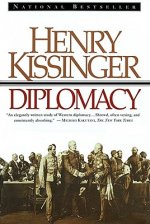
Diplomacy
473 Kč -

Clash of Civilizations and the Remaking of World Order
420 Kč -
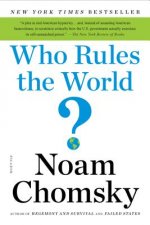
Who Rules the World?
382 Kč -

Righteous Victims
511 Kč -

Tragedy of Great Power Politics
462 Kč -

Image and Reality of the Israel-Palestine Conflict
733 Kč -
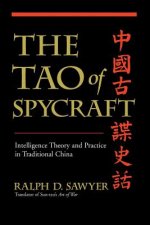
Tao Of Spycraft
1025 Kč -

Lords of the Desert
265 Kč -

Rethinking Fiscal Policy after the Crisis
4008 Kč -

Hundred-Year Marathon
389 Kč -

Legacy of Ashes
441 Kč -

Who Rules the World?
316 Kč -

Adults In The Room
358 Kč -

Cold War
462 Kč -

America's Secret War
433 Kč -

My Nationalist Pony
871 Kč -

PostCapitalism
306 Kč -

Drone Theory
249 Kč -

Understanding International Relations
1177 Kč -

Geopolitics and Geoculture
770 Kč -

Governing the World
357 Kč -

Romania and the European Union
969 Kč -

Chaos in the Liberal Order
626 Kč -

Science Diplomacy: New Day Or False Dawn?
3304 Kč -

Experts' Guide to International Protocol
1758 Kč -

Human Rights and European Law
2171 Kč -
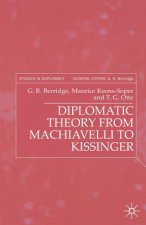
Diplomatic Theory from Machiavelli to Kissinger
5094 Kč -

Rise and Kill First
462 Kč -

The Spy and the Traitor
306 Kč -

PEACE TO END ALL PEACE
488 Kč -

Dead Aid
434 Kč -

Evolution of Cooperation
474 Kč -
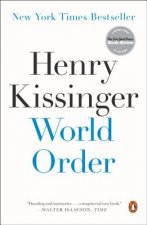
World Order
358 Kč -
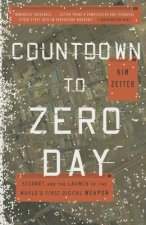
Countdown to Zero Day
384 Kč -

Political Order and Political Decay
420 Kč -

Strategic Vision
374 Kč -

Naked Diplomat
357 Kč -

Planetary Cycles Mundane Astrology
481 Kč -

After the Empire
396 Kč -

Understanding the Intelligence Cycle
1855 Kč -

Revenge of Geography
418 Kč -

Oxford IB Diploma Programme: Global Politics Course Book
1694 Kč -

Dawn of Eurasia
303 Kč -

Emergency Sex (And Other Desperate Measures)
410 Kč
Osobní odběr Praha, Brno a 12903 dalších
Copyright ©2008-24 nejlevnejsi-knihy.cz Všechna práva vyhrazenaSoukromíCookies








 Vrácení do měsíce
Vrácení do měsíce 571 999 099 (8-15.30h)
571 999 099 (8-15.30h)